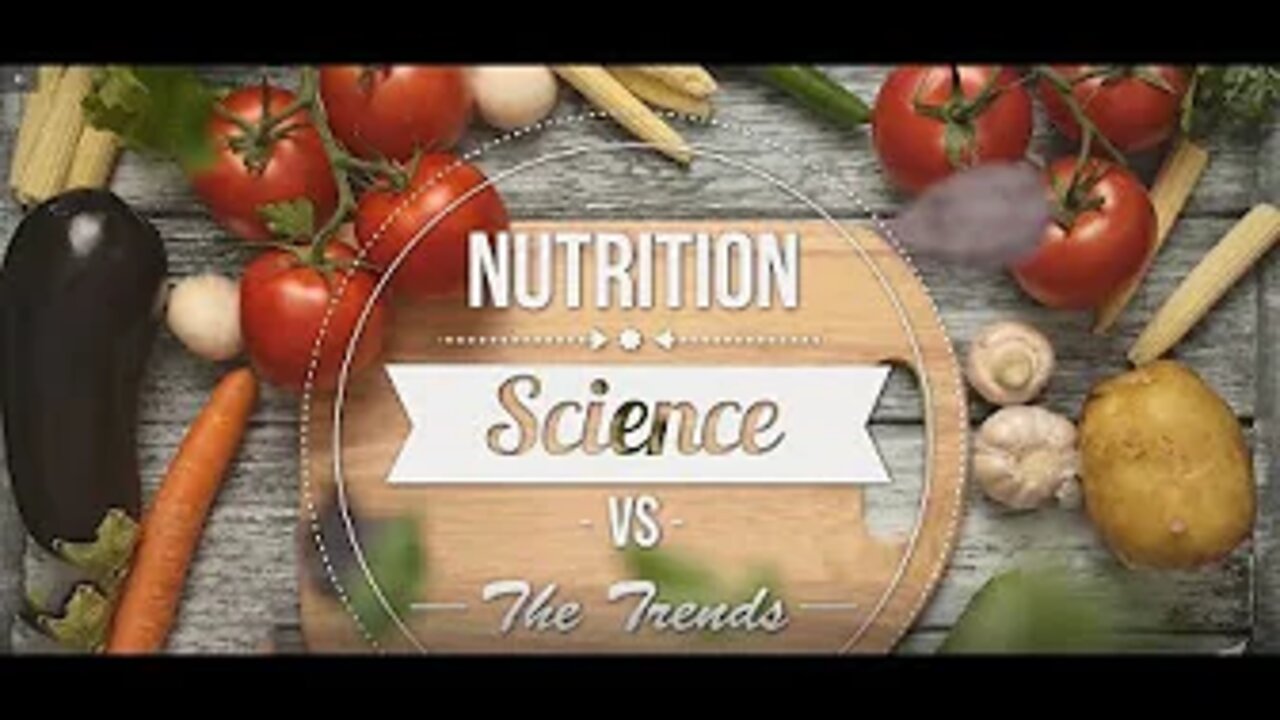Premium Only Content

Nutrition Science Vs the Trends - Keto Diets Episode 1
In today's program we are going to share the science behind the keto diet and address the nuances and considerations as to whether or not this is the right plan for you.
Before we get into what the keto diet is lets make sure we understand the background of ketosis and how our body uses energy.
Metabolism is a group of chemical reactions that take place within the body’s cells for the use of energy.
It is essentially the body’s process of converting food into energy to be utilized in our muscles, nerves, cells, breathing, digestion and circulation of the blood.
Our bodies typically use glucose as energy, which comes from carbohydrate. This comes from things like fruits, veggies and grains.
The body either uses the glucose (simple sugar), or glycogen, the stored form of glucose in the liver as our main source of energy. Glucose travels into the cells by way of insulin the bodies storage hormone, so it can be used for energy production there.
When we decrease the amount of carbohydrate in our diet our insulin levels reduce and the amount of available energy via glucose is also reduced.
So the body needs to turn to a different source of energy, triggering an increased delivery of fatty acids to be used through the liver for fuel.
These fatty acids are called triglycerides which are trapped within your fat cells, until called upon for energy.
This is why nutritional plans like the adkins diet have become so popular for weight loss as they trigger the body's use of fat for energy.
Some of those fatty acids get turned into ketones, or organic acid compounds. Ketosis is the metabolic state where the bodies glucose levels become so low that it switches over to fat stores releasing ketones.
A Ketogenic diet is essentially a metabolic switch from using glucose as the body’s main energy source to burning body fat and ketones.
It is a high fat, moderate protein, low carbohydrate food plan which consists of: 60-75% fat, 15-30% protein, 5-10% carbohydrates.
As the body adapts or becomes more comfortable using fat and ketones we become more efficient at employing these fuel sources for our energy needs.
Basically we become more efficient at oxidizing fat. This has its advantages from a metabolic standpoint.
Some of the advantages include a reduction in inflammatory markers assoicated with metabolic disease.
Some of the basic biomarkers include lowered triglycerides and LDL levels, a decrease in insulin resistance resulting in improved blood sugar regulation, and an upregulation in hormone sensitivity reducing stress on the body.
-
 1:17:49
1:17:49
vivafrei
4 hours agoEpstein Press Conference DEBACLE! Missing Minute FOUND? Canada Continues to Fall! & MORE!
74.7K54 -
 29:30
29:30
Stephen Gardner
2 hours ago🟢YES! Trump’s Doing It! Ben Shapiro UNLEASHES on Democrat STUPIDITY!
19.5K14 -
 LIVE
LIVE
Dr Disrespect
6 hours ago🔴LIVE - DR DISRESPECT - METAL EDEN - NEW 2025 SCI-FI FPS LAUNCH STREAM
1,105 watching -
 LIVE
LIVE
StoneMountain64
4 hours agoBattlefield's Easter Egg Phantom Project is STILL ALIVE
98 watching -
 LIVE
LIVE
LFA TV
11 hours agoLFA TV ALL DAY STREAM - WEDNESDAY 9/3/25
1,287 watching -
 LIVE
LIVE
freecastle
7 hours agoTAKE UP YOUR CROSS- Love...Light...TRUTH!
157 watching -
 1:50:29
1:50:29
The Quartering
4 hours agoEpstein Victims To NAME People, Mutiny Over RFK Jr, Trump Turns On Warp Speed?
130K43 -
 1:33:30
1:33:30
Film Threat
22 hours agoMARVEL ZOMBIES! PLUS DEXTER RESURRECTION | Hollywood on the Rocks
12.7K -
 1:06:51
1:06:51
Jeff Ahern
3 hours ago $0.78 earnedNever Woke Wednesday with Jeff Ahern
19K -
 13:43
13:43
The Kevin Trudeau Show Limitless
8 hours agoClassified File 3 | Kevin Trudeau EXPOSES Secret Society Brainwave Training
37.1K6